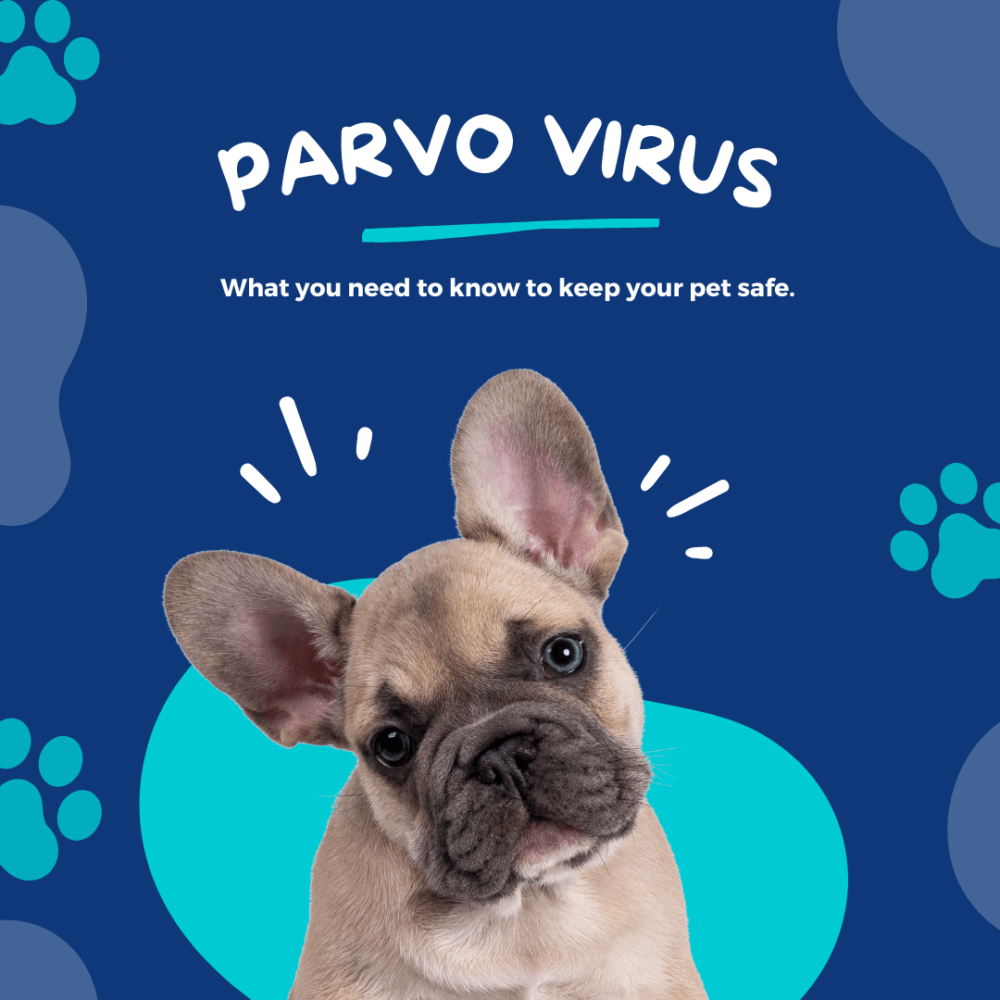As we receive reports of outbreaks of canine parvovirus in our area, we know that education is key to helping prevent and stop the spread of canine parvovirus. You may have even seen Dr. Garrett on NBC29 News last week after Fluvanna County SPCA reported that they had seven puppies who all were positive for parvovirus.
Here are some things that we think you should know about Canine Parvovirus and measure to take to keep your pet safe:
What is Canine Parvovirus:
Canine Parvovirus or Parvo is a highly contagious illness with several different strains. According to the American Veterinary Medical Association AVMA, the virus attacks the white bloods cells and GI tract of canines and is exceptionally dangerous in puppies, as it can damage their heart muscle.
Symptoms:
As mentioned by Dr. Garrett in his interview, recognizing that your pup could be infected is key in successful treatment of parvovirus. Here are some key symptoms to be aware of:
- Lethargy
- Loss of appetite
- Vomiting
- Bloody diarrhea
- Abdominal pain and bloating
If you notice any of these symptoms in your pet, we encourage you to call your veterinarian immediately. Prolonged vomiting, diarrhea and lack of appetite can cause damage to your dogs immune system, dehydration and in some cases death.
Diagnosis and Treatment:
Canine Parvovirus is diagnosed through fecal testing. After testing positive, your vet will put your pet on a highly detailed and multifaceted treatment plan. Many pets who test positive for Parvo require intensive treatment and 24/7 monitoring. In many cases, pets require support care to correct dehydration, control nausea and watch for worsening of condition.
Vaccination and Prevention:
You pet can be protected via receiving immunizations from their veterinarians during their annual wellness checkups. Many times, we call this virus DAPP, as it is a combination immunization that protects against additional canine viral infections. After your puppy’s initial round of shots at 6, 8, 12 weeks we recommend boosters every three years. Dr. Garrett’s interview mentioned that vaccinations are 98% effective.
Additionally, practicing good pet hygiene is also key to keeping them safe. We recommend that pet owners exercise caution bringing their puppies to public places where other dogs are like, kennels, groomers, pet shops and parks. Pet owners should also keep your dogs away from other pet’s fecal matters and be a good pet owner while collecting and disposing your dog’s feces.
As always, we ask that if you are concerned that your pet has symptoms of canine parvovirus we encourage you to call your vet’s office immediately.

